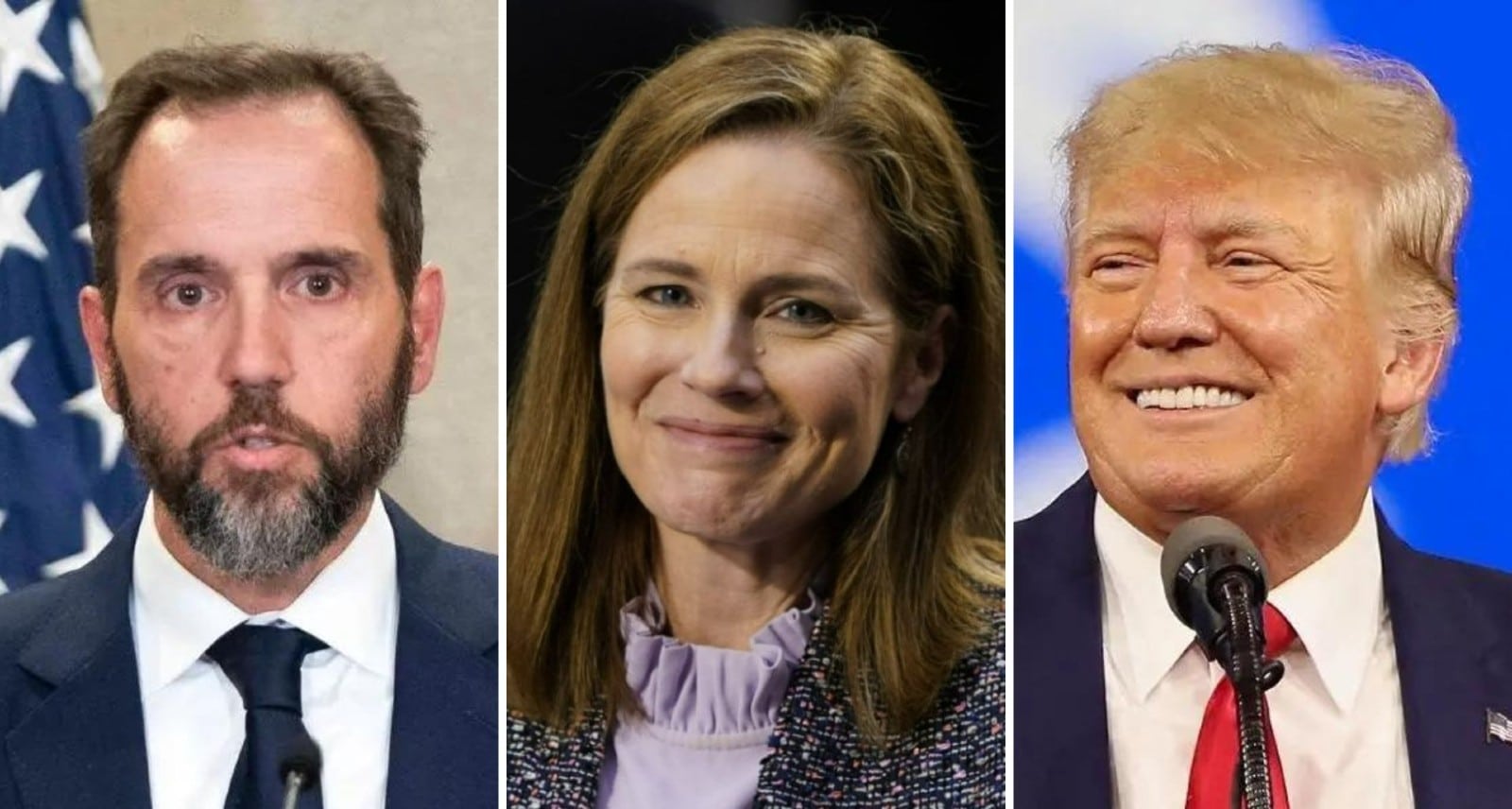OPINION: This article may contain commentary which reflects the author's opinion.
Lawyers for former President Donald Trump dropped a bombshell filing before the U.S. Supreme Court this week, arguing that as head of the Executive Branch, he had “absolute immunity” from prosecution over any action he took while in office.
Seven weeks after a stunning appeals court hearing, during which Trump’s attorney argued that a president could order SEAL Team Six to assassinate a political rival without facing prosecution unless he were impeached and convicted first, the Supreme Court announced it would take up that issue on appeal.
Arguments are scheduled to be heard on April 25.
Trump’s attorneys filed their “absolute immunity” claim using much of the same language that lost twice before in lower federal courts:
A former president enjoys absolute immunity from criminal prosecution for his official acts. Criminal immunity arises directly from the Executive Vesting Clause and the separation of powers. From Marbury through Fitzgerald, and beyond, this Court has consistently held that Article III courts cannot sit in judgment directly over the President’s official acts, whether before or after he leaves office. A fortiori, the courts cannot sit in criminal judgment over him and imprison him based on his official acts.
That said, the new filing is devoid of any mention of SEAL Team Six or assassinating political rivals. But the filing contains several quotes from old law review articles written by a justice Trump appointed to the bench, Brett Kavanaugh:
In short, “a President who is concerned about an ongoing criminal investigation is almost inevitably going to do a worse job as President.” Brett M. Kavanaugh, Separation of Powers During the FortyFourth Presidency and Beyond, 93 MINN. L. REV. 1454, 1461 (2009).
“Prosecution or nonprosecution of a President is, in short, inevitably and unavoidably a political act.” Brett M. Kavanaugh, The President and the Independent Counsel, 86 GEO. L.J. 2133, 2159 (1998). This observation applies to former Presidents as well—and it applies most of all to a former President who is the leading candidate to replace the incumbent who is prosecuting him.
Democrats have denied that Biden has anything at all to do with Trump’s prosecutions, but Biden, as president, is head of all Executive Branch agencies, including the Justice Department. Republicans have countered it is beyond reason to believe that Biden would not have at least been consulted prior to his DOJ filing charges against his chief political rival.
Trump’s team is arguing that he is immune from prosecution in a case filed by Special Counsel Jack Smith in Washington, D.C., on allegations of election interference. That criminal trial, filed in U.S. District Judge Tanya Chutkan’s court, has been put on hold pending the Supreme Court’s decision.
In requesting the review, Trump’s team argued in court documents that “if the prosecution of a President is upheld, such prosecutions will recur and become increasingly common, ushering in destructive cycles of recrimination.”
“Criminal prosecution, with its greater stigma and more severe penalties, imposes a far greater ‘personal vulnerability’ on the President than any civil penalty,” the request continues, according to Fox News. “The threat of future criminal prosecution by a politically opposed Administration will overshadow every future President’s official acts — especially the most politically controversial decisions.”
Trump’s request also says that the president’s “political opponents will seek to influence and control his or her decisions via effective extortion or blackmail with the threat, explicit or implicit, of indictment by a future, hostile Administration, for acts that do not warrant any such prosecution.”
